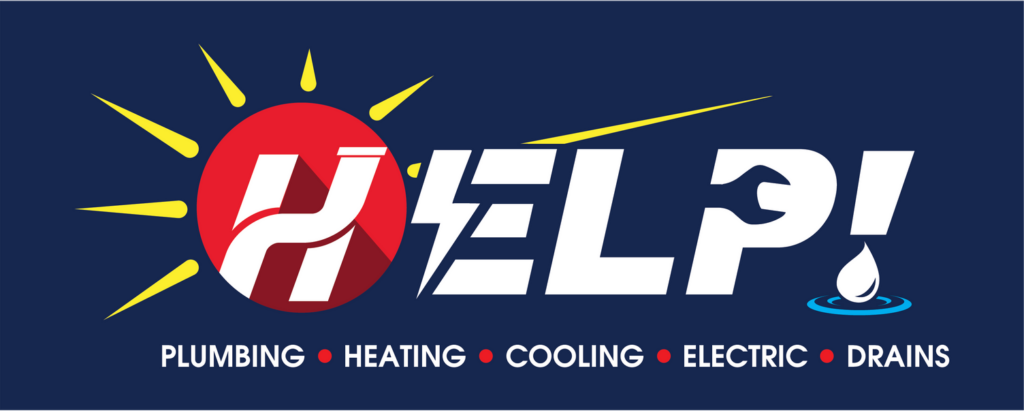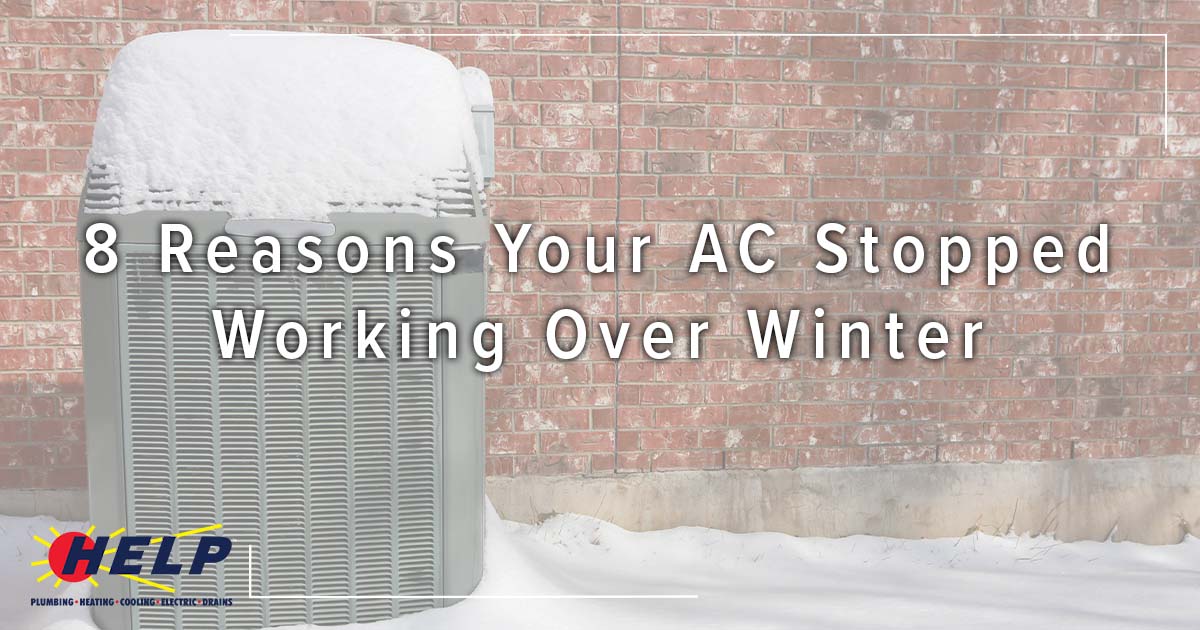 It might not be warm enough outside to turn on your home’s air conditioner, but it will be soon enough. Depending on the age and health of your air AC system, there’s a chance it won’t turn on after resting all winter. We’ll explore eight possible reasons and how you can prepare your AC for the spring and summer.
It might not be warm enough outside to turn on your home’s air conditioner, but it will be soon enough. Depending on the age and health of your air AC system, there’s a chance it won’t turn on after resting all winter. We’ll explore eight possible reasons and how you can prepare your AC for the spring and summer.
1. Tripped Breaker or Blown fuse
Though a rare cause, the air conditioner circuit breaker sometimes trips, or a fuse blows when the system is turned on after a long hiatus. Start by checking the fuse box. Call an HVAC technician if the fuse connected to the AC has indeed blown.
2. Emergency Shutoff Switch
Though rarely used, the emergency shut-off switch is sometimes flipped, and the AC won’t turn on. This switch is usually found outside the home, near the condenser unit. It may be bumped or flipped by accident if someone is doing yard work near the condenser, or an HVAC technician recently maintained the system.
 3. Weather Damage
3. Weather Damage
You don’t need to live in a cold and snowy climate to have weather damage during the winter to your air conditioner. Winds blow around yard debris, such as dirt and sticks, which catch in the condenser unit if it’s not covered. The accumulation may cover crucial sensors, clog coils, and jam the fan blades, which expel warm air from the unit.
4. Blower Failure
The blower and its motor, found in the air handler, work for the HVAC system’s air conditioner and furnace parts. This near year-round operation can cause wear and tear on the blower and motor, leading to breakdowns or complete failure.
5. Clogged Air Filter
Although the definition of a clogged air filter changes depending on who you ask, if air can’t pass through to the system, the AC won’t work. It catches dust, dirt, hair, and other minute household debris floating in the air. Unless the filter changes regularly, the debris builds until no air can pass through. Ergo, a clogged air filter.
6. Malfunctioning Thermostat
A thermostat may malfunction for various reasons, but if it’s not working properly, neither will your air conditioner. Ensure the thermostat is set to cool, then lower the temperature by a few degrees. If the system doesn’t kick on, you likely have an issue with the thermostat.
 7. Capacitor Failure
7. Capacitor Failure
The condenser motor, found in the outside part of the AC, relies on two capacitors to work. The first one — the start capacitor — provides adequate voltage for the motor to begin running. The second — the run capacitor — provides a smaller voltage for the motor to run as needed during the cooling cycle. Without regular tune-ups, the capacitors go through unnecessary wear and tear and break down prematurely.
8. Clogged Condensate Line
As the air conditioner pulls heat and humidity from the air, moisture is released and funneled into the condensate drain line. Without regular cleaning, this line may become clogged with mold and mildew growth. As the moisture begins to back up the line into the drain pan, it will eventually trigger an automatic shut-off feature in the AC. This protects the entire system from moisture exposure that can create even more significant issues.
 Prepare AC for Spring
Prepare AC for Spring
Clean debris around the condenser
Every air conditioner operates at its best when there’s suitable airflow on all sides of the condenser for temperature regulation and ventilation. Keep at least two feet clear around the unit at all times. If bushes, shrubs, or trees are planted nearby, keep these trimmed, so they don’t obstruct the airflow.
Change the air filter
Your HVAC system’s air filter should be changed every two to three months or sooner if you live in a dusty environment. Look at the sides of the existing air filter for the correct replacement size; they can be purchased at many department and hardware stores.
 Keep your air vents open
Keep your air vents open
It’s an old wives’ tale that closing the air vents in unused rooms saves energy and lowers your electric bill. Instead, it restricts airflow to and from the system, causing it to work harder to deliver conditioned air and possibly setting the stage for a shutdown.
Schedule a tune-up
The best way to prevent your air conditioner from stopping after the winter is by scheduling a tune-up. Preventive maintenance catches potential issues before they become halting problems. It also helps the entire system run more efficiently, thus saving you money on monthly electric bills.
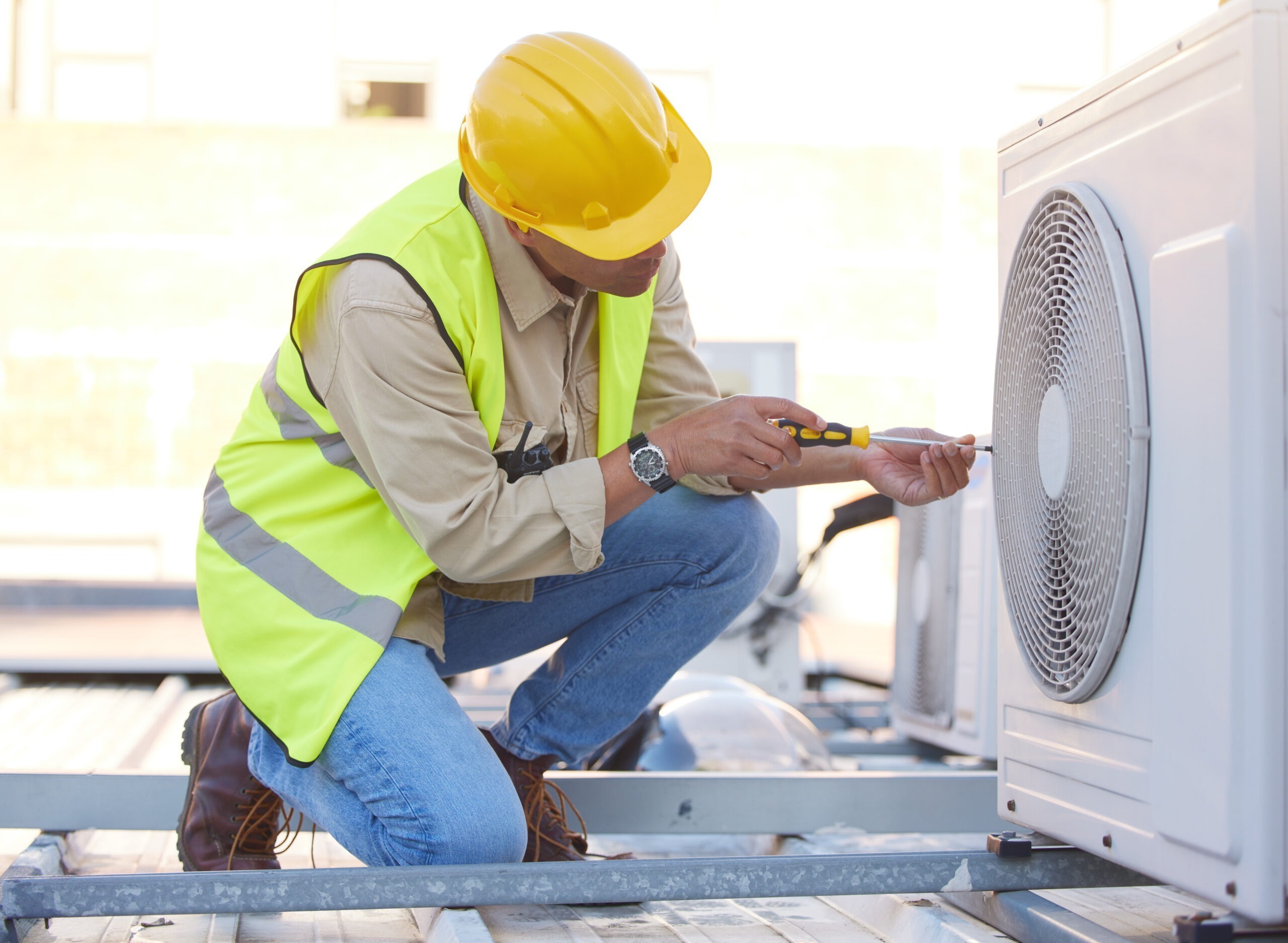 While there are several reasons your AC stopped working over the winter, many have quick resolutions so you can enjoy a comfortable indoors as the temperature rises outside.
While there are several reasons your AC stopped working over the winter, many have quick resolutions so you can enjoy a comfortable indoors as the temperature rises outside.
If your AC system needs a little help starting this year, contact HELP Plumbing, Heating, Cooling and Drains for fast and reliable HVAC service.


 3. Weather Damage
3. Weather Damage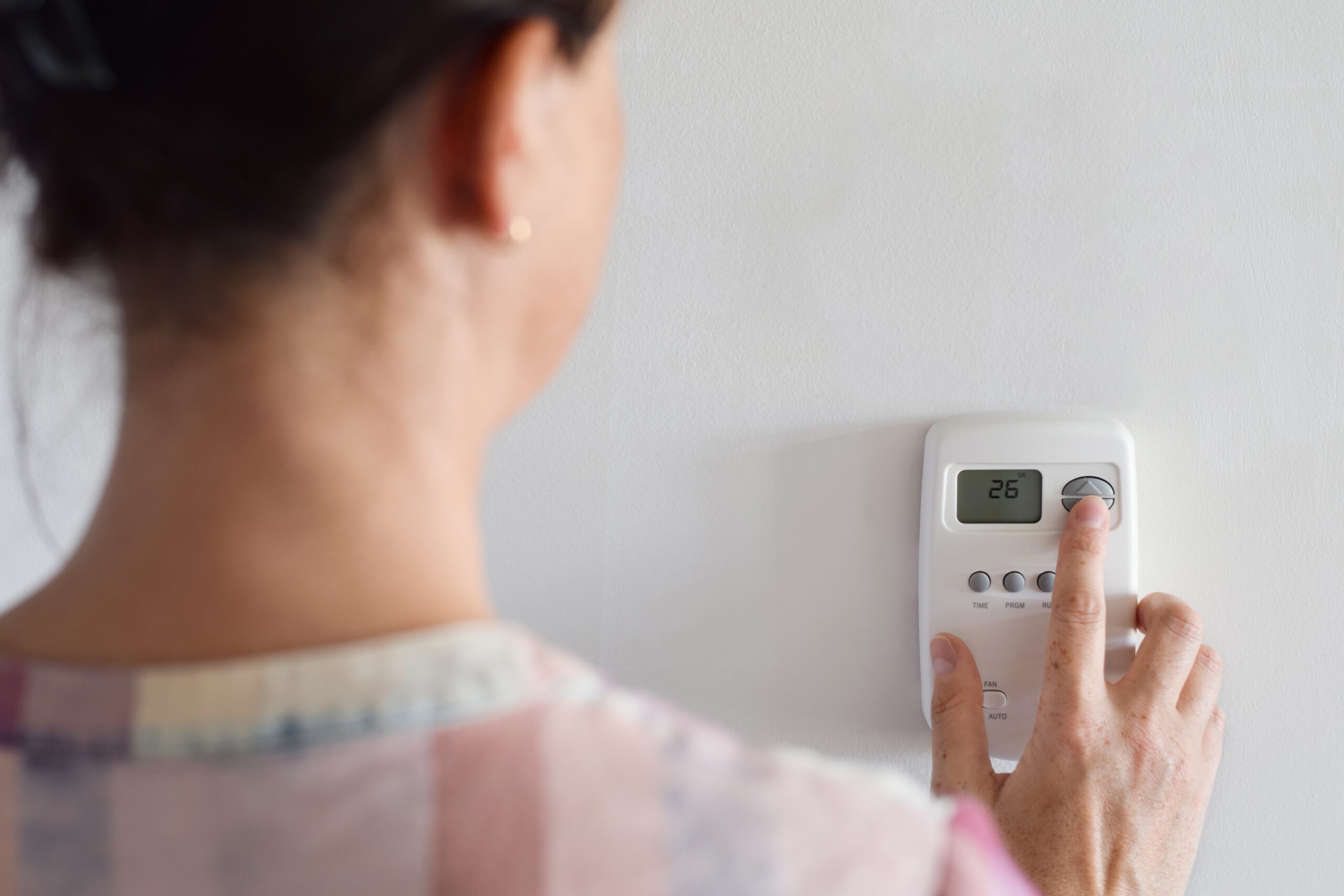 7. Capacitor Failure
7. Capacitor Failure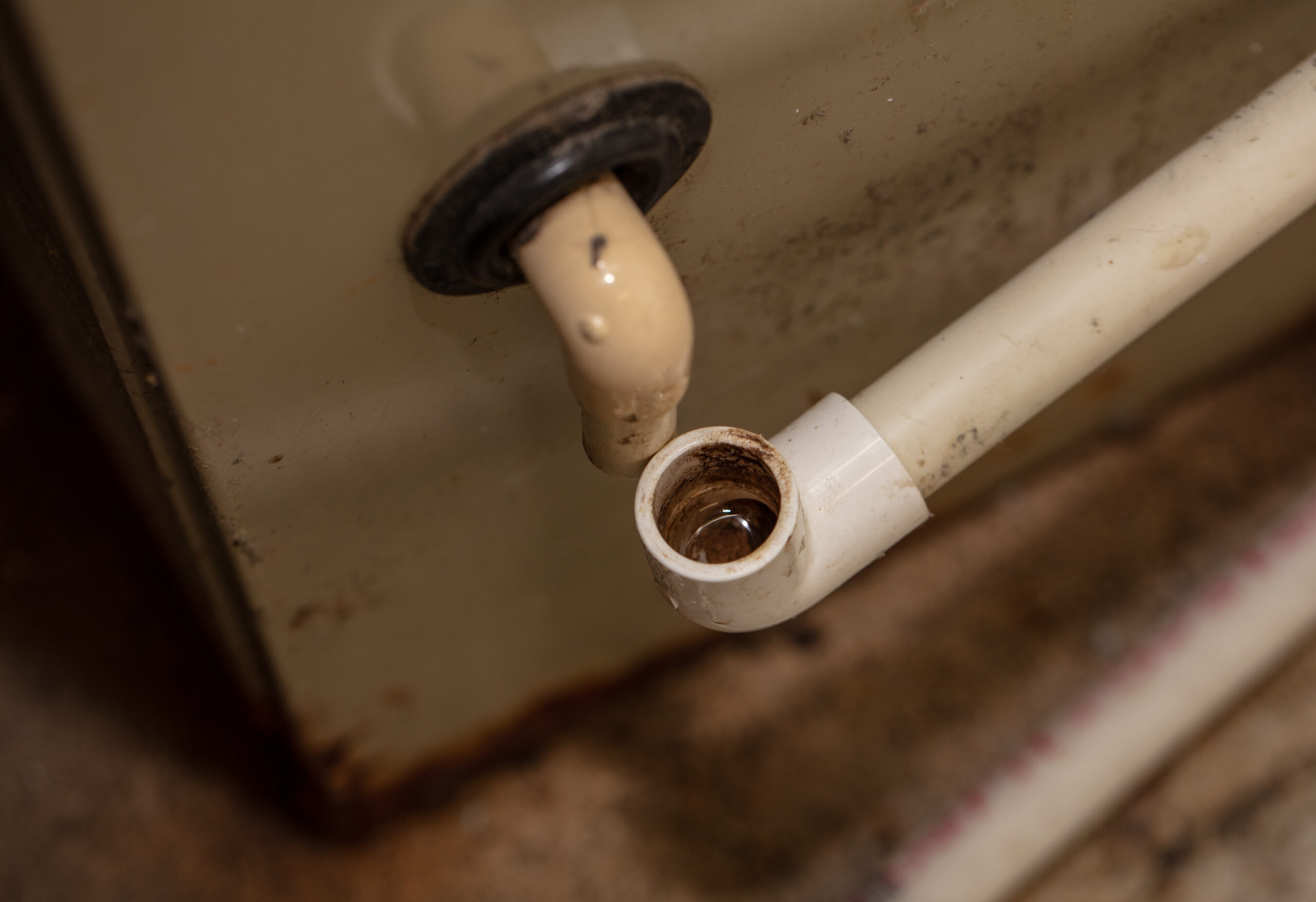 Prepare AC for Spring
Prepare AC for Spring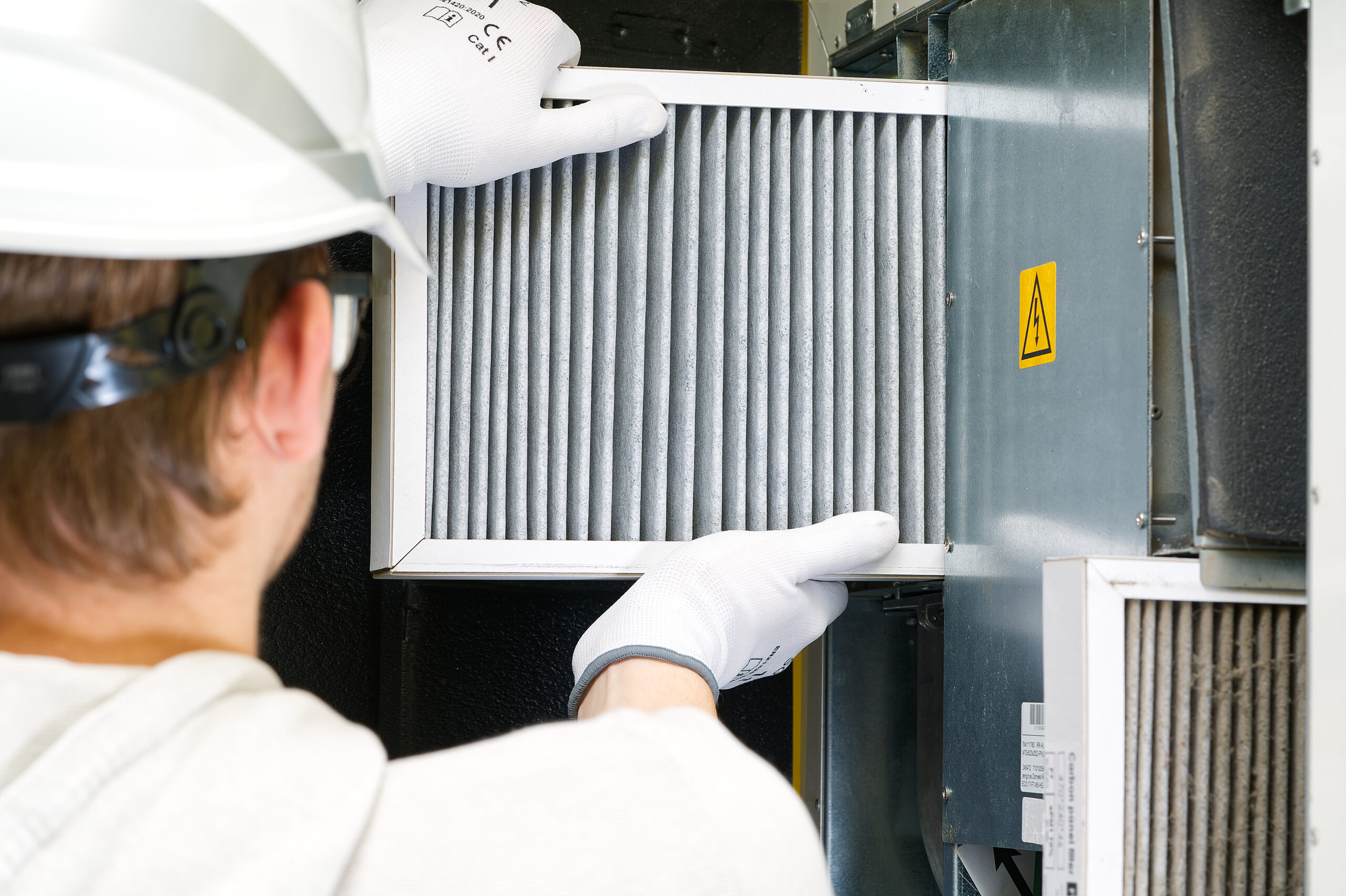 Keep your air vents open
Keep your air vents open